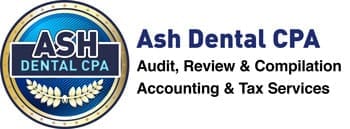Healthcare: Updating Your Bookkeeping

Bookkeeping Framingham MA
Tax season is never too far away. As a medical professional, it is important to update your bookkeeping to comply with IRS regulations. Although it is tempting to ignore, updating your bookkeeping ensures that you accurately file tax returns. Here are guidelines to help you clear your bookkeeping backlog. Read more below and contact us today.
Step 1: Collect all receipts
Gather all invoices and receipts from your practice’s expenditure. The following are examples of receipts that you should keep.
- Patient Invoices – check your patient accounts from the past year and ensure that all sales were recorded regardless of whether they paid in cash, on credit or otherwise. If sales are not recorded, the book will not balance, and this is a recipe for bookkeeping disaster.
- Debt collections – are there any bad debt expenses? You should deduct the number of bad debts from the tax returns. In so doing, show the IRS steps that you took to recover the money. You normally deduct bad debts from the gross income of business when calculating your practice’s tax income.
- Business expenses- this refers to costs incurred in operating the enterprise. Examples are transportation, salaries, purchase of stock and utilities. Gather all receipts and double-check their correctness.
- Vendor accounts – check the accounts of your suppliers of goods and services to verify that your business has paid them in full. If you do not have copies of bills, ask vendors to send you.

Step 2: Reconcile all bank accounts
Check for any errors in the records of your business. Compare the transactions and balances there to confirm they tally with your business records. This ensures your bank statement balance matches the company records balances.
It can be very costly when you hand over accounts to accountants when they are not fully reconciled. They will charge additional penalties if they have to straighten things out for you.
Step 3: Separate business expenses from personal
Keep personal expenses far away from business accounts because you may be held responsible for debts or losses that your business makes. You risk losing the liability protection on top of suffering stress when filing returns and when bookkeeping.
Step 4: Go paperless
Digital receipts, statements, and records are more efficient than traditional paperwork. We do not recommend throwing out all traditional records. Instead, have digital copies that you can easily compute to make your work easier. The following digital tools can help you go paperless.
- Shoeboxed software scans and arranges business receipts and then generates expense reports.
- FileThis mobile application allows you to upload photos of statements, receipts, and bills to store them online.
- ScanSnap Scanner can upload and store your scanned papers to Evernote
Step 5: Gather W-9s, 1099s, and W-2s
You most likely will have to file several tax forms if you hired independent employees or contractors in the past tax year. The following are examples.
- Form 1099-MISC and Form W-9 for Independent Contractors – if you spent more than $600 in the fees of independent contractors, you must file and submit these forms. Form W-9 is a request to the contractor to provide his taxpayer information. When the contractor fills the form, you can prepare a Form 1099-MISC to file to the IRS.
- Form W-2 –This form must be filled for all your members of staff.
Step 6: Let a tax professional look at your expenses
Perhaps the least expensive method of bookkeeping is doing all financial and accountancy work yourself. However, it is highly recommended that you invite an experienced CPA or tax expert. He should review all tax deductions, books, expenses, and other financials just before you file your taxes.
Having an external reviewer gets rids of errors while ensuring that your business claims all deductions available. Additionally, a professional can speak to the IRS on your behalf. Learn more by scheduling a complimentary consultation with Ash Dental CPA. Call (508) 458-6789 to schedule a complimentary consultation.
